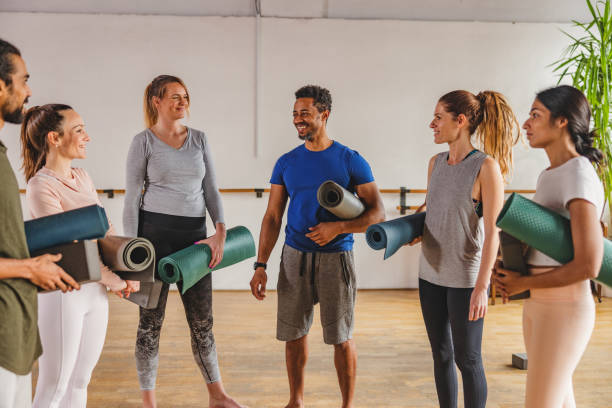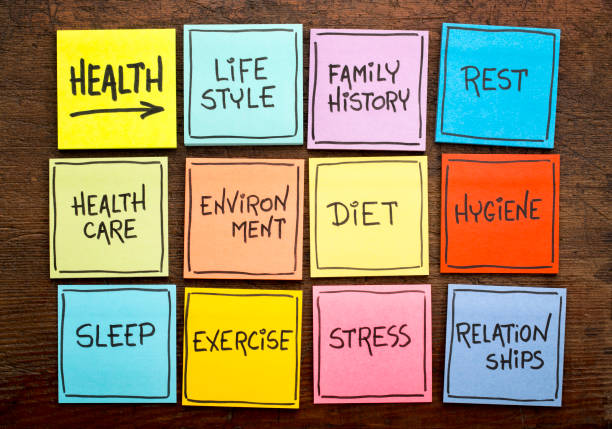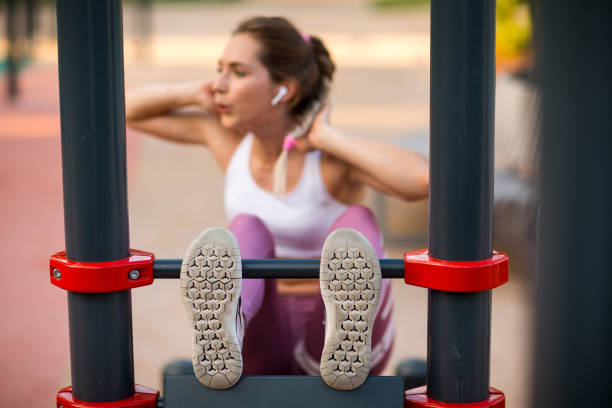
The importance of physical activity for our overall health and well-being is undeniable. It not only keeps us physically fit and healthy but also helps improve our cognitive function. Recent studies have shown that engaging in regular physical activity can have a direct positive effect on our cognitive performance and mental health. But what is the secret to unlocking the full potential of physical activity and unlocking its cognitive benefits? In this blog post, we’ll explore this question in depth and uncover the secrets to improved cognitive function through physical activity.
Physical Activity Enhance the Mental Health
Engaging in regular physical activity not only has profound effects on our physical health but also plays a vital role in maintaining our mental well-being. The benefits of physical activity on mental health are extensive and far-reaching, providing us with an array of positive outcomes that contribute to our overall happiness and quality of life.
One of the primary ways in which physical activity enhances mental health is through the release of endorphins. These feel-good chemicals are produced by the brain during exercise and act as natural mood elevators. By increasing endorphin levels, physical activity helps alleviate symptoms of stress, anxiety, and depression, leaving us feeling more relaxed, content, and positive.
Regular exercise also boosts our self-esteem and self-confidence. As we engage in physical activities, we challenge ourselves and push our limits, achieving personal goals and milestones along the way. These accomplishments enhance our self-belief, instilling in us a sense of accomplishment and pride in our abilities. This, in turn, improves our overall self-esteem and confidence in our everyday lives.
Additionally, physical activity helps improve our sleep quality, leading to better mental health. When we exercise, our bodies release excess energy, making it easier for us to fall asleep and stay asleep throughout the night. Regular physical activity has also been found to reduce the symptoms of sleep disorders such as insomnia, leading to more restful and rejuvenating sleep. By promoting healthy sleep patterns, exercise enables us to wake up refreshed and ready to take on the day, improving our overall mood and cognitive function.
Furthermore, physical activity has been shown to reduce the risk of developing mental health conditions such as depression and anxiety. Engaging in regular exercise helps regulate the levels of stress hormones in our bodies, reducing the risk of these hormones wreaking havoc on our mental well-being. Additionally, exercise promotes social interaction, as it often involves participating in group activities or sports. This social aspect provides us with a support network, fostering a sense of belonging and connectedness that can be beneficial in preventing and managing mental health conditions.

The physical Activity is beneficial for Brain Function
Physical activity not only benefits our physical health and mental well-being but also has a profound impact on our brain function. The science behind physical activity and brain function is complex and fascinating, but understanding the underlying mechanisms can help us unlock the full potential of physical activity and its cognitive benefits.
When we engage in physical activity, whether it’s going for a run, lifting weights, or participating in a yoga class, our brains undergo a series of changes. These changes occur at a cellular level and involve various regions of the brain working together to improve cognitive function.
One of the key ways in which physical activity enhances brain function is by increasing blood flow and oxygen delivery to the brain. When we exercise, our heart rate increases, and more blood is pumped to our brains. This increased blood flow delivers oxygen and nutrients to our brain cells, promoting their growth and function. It also stimulates the production of new brain cells, a process known as neurogenesis, which is essential for learning and memory.
Physical activity also triggers the release of neurochemicals and growth factors in the brain, such as brain-derived neurotropic factor (BDNF). BDNF plays a crucial role in the growth, survival, and differentiation of brain cells. It enhances synaptic plasticity, which is the ability of our brain cells to form new connections and strengthen existing ones. By promoting neuroplasticity, physical activity improves our cognitive function, including memory, attention, and problem-solving skills.
Chronic inflammation in the brain is associated with cognitive decline and an increased risk of neurodegenerative diseases such as Alzheimer’s and Parkinson’s. Regular physical activity helps regulate inflammatory processes, protecting our brains from damage and promoting overall brain health.
In addition to these cellular and physiological changes, physical activity also has a positive impact on our mental state. When we exercise, our brains release endorphins, serotonin, and dopamine, which are chemicals that elevate mood, reduce stress, and promote feelings of happiness and well-being. These neurochemicals not only enhance our mental health but also contribute to improved cognitive function.
Overall, the science behind physical activity and brain function is clear: regular exercise promotes, reduces inflammation, and enhances our mental well-being. By incorporating more physical activity into our daily routines, we can unlock the full potential of our brains and experience improved cognitive function and overall well-being.

How Exercise Improves Cognitive Performance
Regular exercise not only has numerous benefits for our physical health and mental well-being but also plays a significant role in improving our cognitive performance. The relationship between exercise and cognitive function is multifaceted, and understanding how exercise improves cognitive performance can help us fully unlock its potential.
One way exercise enhances cognitive performance is through its positive effects on brain structure. Research has shown that aerobic exercise, such as running or swimming, can increase the size of the hippocampus, a region of the brain associated with memory and learning. Exercise also stimulates the growth of new neurons in the hippocampus, promoting neuroplasticity and improving our ability to retain and process information.
Exercise also enhances cognitive function by increasing the production of neurochemicals and neurotransmitters. For example, aerobic exercise increases the release of brain-derived neurotropic factor (BDNF), a protein that promotes the survival and growth of brain cells. BDNF also facilitates communication between brain cells, improving memory, attention, and executive functions.
In addition, exercise has been found to enhance cognitive function by reducing inflammation and oxidative stress in the brain. Chronic inflammation and oxidative stress can impair cognitive function and increase the risk of neurodegenerative diseases. Regular exercise helps combat these negative effects by promoting the production of antioxidants and anti-inflammatory molecules, protecting our brains and improving cognitive performance.
Furthermore, exercise has a direct impact on our mental state, which in turn affects our cognitive performance. Physical activity triggers the release of endorphins, serotonin, and dopamine, which are chemicals that elevate mood and reduce stress. These neurochemicals not only improve our mental health but also enhance our ability to focus, concentrate, and solve problems.
Incorporating various types of exercise into our daily routine, such as cardiovascular workouts, strength training, and activities that require coordination, can further enhance cognitive performance. These activities challenge our brains to adapt and coordinate multiple processes simultaneously, promoting neuroplasticity and cognitive flexibility.
In summary, exercise has a multitude of benefits for our cognitive performance. It improves brain structure, increases the production of neurochemicals, reduces inflammation, and enhances our mental state. By making exercise a regular part of our lives, we can unlock the full potential of our cognitive abilities and enjoy improved brain function and overall well-being.

Strategies to Incorporate More Physical Activity into Your Daily Routine
Incorporating more physical activity into your daily routine doesn’t have to be a daunting task. With a little creativity and planning, you can easily find ways to move your body and reap the benefits of increased physical activity. Here are some strategies to help you incorporate more physical activity into your daily routine:
- Find activities you enjoy: The key to sticking with any form of physical activity is finding something you enjoy. Whether it’s dancing, hiking, cycling, or playing a sport, choose activities that bring you joy and make you excited to move.
- Make it a social activity: Physical activity doesn’t have to be a solo endeavor. Invite friends, family, or coworkers to join you in your physical activities. Whether it’s going for a walk during your lunch break or joining a fitness class together, having a workout buddy can make exercise more enjoyable and help keep you motivated.
- Make it a part of your daily routine: Schedule physical activity into your daily routine, just like any other appointment. Whether it’s waking up 30 minutes earlier for a morning run or going for a walk after dinner, having a set time for physical activity can make it easier to stick with.
- Start with small sets: If you’re just starting out, aim for 10 minutes of activity per day and gradually increase the duration as you build stamina. Setting realistic goals will help you stay motivated and avoid feeling overwhelmed.
- Incorporate physical activity into everyday tasks: Look for opportunities to add more movement throughout your day. Take the stairs instead of the elevator, park farther away from your destination to get some extra steps in, or use a standing desk instead of sitting all day.
- Get creative with your workouts: Don’t feel limited to traditional forms of exercise. Find creative ways to move your body, such as taking a dance class, trying out a new sport, or using household items as workout equipment.

Remember, every bit of physical activity counts. Whether it’s a short walk during your lunch break or a full-blown workout session, any amount of movement is beneficial for your health and well-being. By incorporating these strategies into your daily routine, you can make physical activity a habit and unlock its full potential for improved cognitive function and overall well-being. So, get moving and start reaping the rewards of a more active lifestyle!
Overcoming Barriers to Regular Physical Activity
We all know the importance of physical activity for our overall health and well-being. However, sometimes life gets in the way and we find it difficult to incorporate regular exercise into our daily routines. The good news is that with a little planning and determination, we can overcome these barriers and make physical activity a regular part of our lives.
One common barrier to regular physical activity is lack of time. Finding time to exercise can feel like a daunting task. But here’s the secret: you don’t need hours on end to reap the benefits of physical activity. Even short bursts of activity can make a difference. Look for opportunities to move throughout your day, whether it’s taking the stairs instead of the elevator or going for a quick walk during your lunch break. By making small changes to your daily routine, you can fit in physical activity without sacrificing precious time.

Another common barrier is lack of motivation. Let’s face it, exercise can be hard work and sometimes we just don’t feel like doing it. The key is finding activities that you enjoy and that make you excited to move. Whether it’s dancing, hiking, or playing a sport, find something that brings you joy. Additionally, having a workout buddy can provide the motivation and accountability you need. Invite a friend, family member, or coworker to join you in your physical activities. Not only will you have someone to keep you company, but you’ll also have someone to cheer you on and celebrate your progress.
Financial constraints can also be a barrier to regular physical activity. Gym memberships and fitness classes can be expensive, making it difficult for some individuals to afford. But there are plenty of low-cost or free alternatives. Explore your community for free fitness classes or outdoor recreational areas. Many parks offer walking or running trails, basketball courts, or open spaces for activities. Additionally, there are countless online resources and apps that provide workout routines and exercises that can be done at home without any equipment.

Lastly, a lack of confidence or fear of judgment can prevent people from engaging in physical activity. It’s important to remember that everyone starts somewhere, and nobody is judging you. Focus on your own journey and celebrate your own progress. If you feel uncomfortable exercising in public, there are plenty of at-home workout options available. Whether it’s following a workout video or using a fitness app, you can get your heart pumping and muscles moving in the comfort of your own home.




Hey there, ready to take your ad game to the next level? Imagine your message popping up in website contact forms all over the world, reaching heaps of potential customers! Starting at just under $100, our affordable packages pack a punch. Shoot me an email now to chat more about getting your brand out there! Let’s make some noise together!
P. Stewart
Email: 3ax4dy@gomail2.xyz
Skype: live:.cid.2bc4ed65aa40fb3b